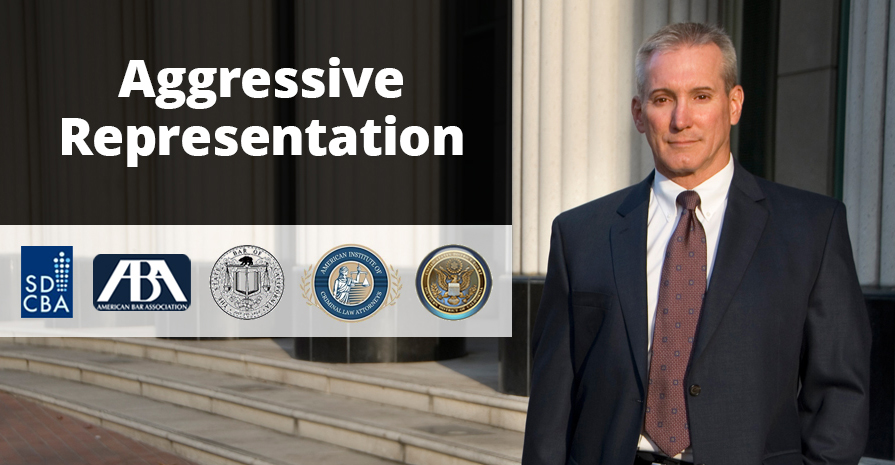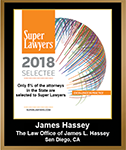|
DUI Defense |
DUI Defense20 Ways to Beat a DUI Whether your case involves alcohol, marijuana, illegal drugs or medicine, we will help. The facts of your case will likely be unique to your situation. Just a few pieces of information that will likely be unique to your situation include:
Although in order to construct the strongest defense for you, we will need you to give us some details, however, below are some possible defenses to a DUI charge. To find out which one(s) may help you the most, call our office and speak with an experienced DUI Defense Attorney. 1) The initial stop was unlawful to begin with and all subsequent evidence is fruit of the poisoned tree – To being with, each individual has the strong Constitutional protections of the 4th Amendment which bestows, among other things, the right to travel without being impeded by Government action. To allow the Government to impede this right the People must articulate a reasonable basis to believe a law has been violated or crime is afoot, and a vehicle cannot be stopped and seized unless a violation has occurred. As per the United States Supreme Court, if the initial stop was unlawful to begin with, the subsequent evidence against the defendant (such as the driver’s BAC or FST performance) may be suppressed (kept from being used against the defendant). If the prosecutor cannot use any evidence acquired ‘after’ the stop, the prosecutor may have to dismiss the case against you. Generally the process to challenge the admissibility of evidence is a court hearing, initiated by the filing of a Motion to Suppress based on PC§1538.5. 2) Driver was not properly notified of his/her MIRANDA rights – although there is settled law regarding DUIs and the difference between ‘investigatory’ questions and ‘interrogation.’ Although investigatory questions are allowed, the prosecutors may not use statements the defendant/driver made while 1) in custody, and 2) asked a question the asking officer knew or should have known would elicit an incriminating response (Miranda v. Arizona). 3) Weaving Inside the Lanes – It has been determined to be well-settled law by our United States Supreme Court that a person is not expected to drive a ‘perfect vector’ within a lane. Because of possible distractions, both inside and outside the vehicle (i.e. – changing the radio, fiddling with the AC/climate-control, looking for an exit, etc.), drivers are allowed much lee-way when it comes to weaving within a lane, and the driver should not have been initially stopped, which could lead to the suppression of evidence against you and your case being dismissed. 4) Report By a Tipster Made To Police of a Drunk Driver – Were you initially pulled-over because someone else called police and reported you as a drunk driver? Our United States Supreme Court has heard and ruled on, the seminal case regarding what is required for the stop of a vehicle, based on another citizen who called into police (a “tipster”), to be lawful. If the initial stop of the vehicle was unlawfully based on a tip from another citizen and the driver should not have been initially stopped, this could lead to the exclusion of evidence against you which was collected as a direct result of the tip, which could lead to your case being dismissed. 5) Inaccurate Field Sobriety Test Testing – studies have shown that with even healthy individuals, the one-leg stand test is only 65% accurate, and the walk-and-turn test is only 68% accurate in determining impairment. And that is when the FSTs have been communicated and demonstrated correctly. Person’s with injuries, impediments or handicaps, medical conditions, 50+ lbs. overweight, or 65 years or older, cannot be validly measured or judged by these tests. 6) The Use of Non-Standardized FSTs Are Invalid – no agency, including the National Highway Traffic Safety Administration (‘NHTSA’, commonly referred to as ‘nitsa’) and no medical science, considers touching your finger to your nose, saying the alphabet, or counting backwards, as a valid sobriety test on their own. 7) Inaccurate Breath Test – law-enforcement must adhere to specific and strict guidelines when administering breath testing. This includes (but is not limited to) not only when and for how-long the officer observed the driver prior to the driver blowing into the breathalyzer, but how much time in-between multiple breath tests was given. Most experts concede that one breath test alone is unreliable. Breath testing is subject to various inaccuracies, including a variance of as much as +/- 12.5%; non-specificity for ethanol, etc. 8) Booking Videos – many police stations videotape the suspect at the police station. The video may show the suspect’s speech was clear and not slurred, and their balance was fine and reasonable. This video evidence may be introduced to contradict police testimony. 9) Conflicting MVARS and/or Body-Cam evidence – some (but not all) law-enforcement vehicles are equipped with Mobile Video Audio Recording Systems (“MVARS”). Additionally, some (but not all) law-enforcement personnel themselves are equipped with body-cameras. Having an experienced DUI Defense Attorney representing you that knows details such as which law-enforcement agencies have which, can not only keep from wasting valuable time trying to acquire evidence which does not exist. If the proper evidence is acquired it may show facts which contradict officer testimony, which could call into question other evidence provided against the driver. 10) Lack of a Speedy Trial Materially Impairs the Defendant – it is a Constitutional Right to be provided a trial reasonably quickly (30 days if IN-custody, 45 days if OUT) after either *the criminal complaint was filed; *the date the defendant was arrested; *the indictment was filed, or *after a hold order was issued after a preliminary examination. Depending on the length and reason for the delay, whether the defendant has asserted his right and the amount of prejudice the defendant has suffered, a Serna motion may be filed and if granted, the Defendant’s case is dismissed. 11) Inaccurate and unreliable Blood Test – the prosecutor’s office and its supporting entities (such as crime labs) are not immune from making mistakes. If police blood-testing has failed to follow prescribed rules for preserving, testing, or analyzing blood evidence, it may be unreliable and inadmissible against the defendant which could lead to the case being dismissed. 12) Inaccuracy of Hospital Blood Test Results – Was your blood taken at a Hospital? Hospital blood tests in healthy, uninjured individuals can overestimate a person’s true BAC level by as much as 25%, making them not statistically reliable in severely injured persons. 13) Unreliable Breath Test Results – either the operator of the breath test machine may not have been validly licensed, or the machine may not have been properly calibrated, or the defendant has a condition that may have skewed the breath-test results (such as vomiting, burping or GERD). An experienced DUI Defense attorney will know what to request, how to request it, and how to analyze the information. If either the machine or it’s operator are invalid, or there are unique facts about the defendant, the B.A.C. results may be inadmissible against the defendant, which could lead to the case being dismissed or a more desirable outcome. 14) Unapproved Test Device – the breath-test device likely should have been listed on the Federal List of Approved Breath Evidential Instruments and the state approved list of test devices. 15) Failure to Prove Driving Under the Influence – did the arresting officer actually witness the defendant driving. If the person suspected of driving under the influence merely ‘said’ s/he drove, without the prosecutor being able to offer more evidence, may not be enough to prove a charge of driving under the influence. 16) Supporting Witnesses – Sometimes independent witnesses can be very valuable. Witnesses at the scene, witnesses that observed the suspect’s driving, bartenders, hospital personnel and others may provide valuable evidence of the defendant’s sobriety. 17) The Disciplinary Record of the Officer – the officer which made the stop, asked questions and made the arrest may him/herself have a record in his/her personnel file which may be obtained and used to call into question his/her credibility. 18) Rising or Decreasing Blood Alcohol Level – for non-commercial driver adults 21 and over, California’s DUI law (VC§23152(b)) states that you may not have a blood-alcohol-level (‘B.A.C.’) of .08 or above ‘at the time of driving’. Although rates are slightly different for male or female (defendants), the process for the body absorbing, then eliminating alcohol usually follows a bell-shaped-curve. If the defendant gave breath evidence, multiple tests likely exist which track the level of alcohol in the defendant’s system (rising or falling) over time. Because the tests are likely done ‘after’ the driving occurred, prosecutors usually use an equation called ‘Retrograde Extrapolation’ (to basically go back in time) to show what the defendant’s B.A.C. was at the time of driving. An experienced DUI Defense attorney should know how to either use rising or lowering B.A.C. in your favor, or call into question numbers that may not be in your favor. 19) Unlawful Search – Did the officer search the vehicle and find incriminating evidence that was not in plain-view, without consent; a warrant, or probable cause and an exigent circumstance? During a stop for a minor traffic offense (i.e. – speeding, changing lanes without signaling, or even weaving) an officer is prohibited from searching the car without the driver’s consent or probable cause to support the search. Unless an exception is met, any evidence unlawfully obtained may not be admitted against the defendant in court. If your attorney does not timely make the proper objections, you are deemed to have waived them. An experience DUI Defense attorney will know how to properly challenge the admissibility of evidence. 20) Blood-Test Split – if the Defendant-driver gave blood evidence and it may help the case to do separate professional test of the blood-evidence, an experienced DUI Defense Attorney will know whether ‘running a blood-test-split’ will help your case. |
|











